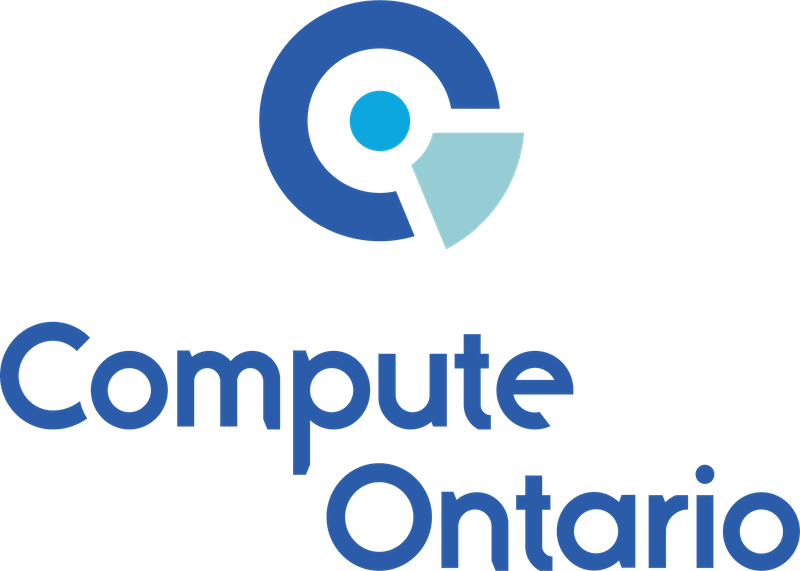
DRI Learning Resources
-
Compute Ontario provides funding to the DRI community for the development of open-access learning resources to support researchers in using DRI tools effectively. Self-guided training modules, reference materials, templates and tools are available on a range of topics from how to access and use national DRI systems to principles and tools for research data management to machine learning skills and methods.
ADVANCED RESEARCH COMPUTING, AI and ML
Introduction to advanced research computing using Digital Research Alliance of Canada resources, Carleton University
Instructional book in English, Covering:
Digital Research Alliance of Canada Resource Overview
Introduction to the Unix Shell
Parallel and Distributed Computing
General Purpose Computing Using a GP
Introduction to SciNet and Trillium, SciNet
Self-guided Moodle course in English for new Niagara/SciNet users
Introduction to GIT Version Control, SciNet
Self-guided Moodle course in English.
Includes a general introduction to version control
Introduction to AI and ML, with RDM integration, University of Ottawa
Eight structured, self-guided modules in French and English, each including a Jupyter Notebook, datasets and additional curated resources:
Data cleaning and linear regression
Decision trees and random forests
Naive Bayes
Support vector machines
K-nearest neighbours
Natural language processing
Transfer learning and introduction to convolutional neural networks
Dataset analysis, model shortlisting and model determination
Introduction to advanced research computing in fluid dynamics, University of Waterloo
A 16-hour online, asynchronous course in English to help learners with a basic understanding of fluid dynamics and CFD bridge the knowledge gap towards the effective utilization of CFD on modern ARC resources.
RESEARCH DATA MANAGEMENT
Good data handling practices for researchers, University of Ottawa Heart Institute and Ottawa Hospital Research Institute
Self-guided courses, templates and other resources in English (some also in French) related to:
Ethics and harmonized consent language
Data management planning
Data handling
Research Data Management (RDM) knowledge, skills, tools and best practices, Canadian Bioinformatics Workshops, Ontario Institute for Cancer Research, McGill University, Pan-Canadian Genome Library
7 self-guided modules, available in French and English. Topics include methods to improve the discoverability, reusability, and machine actionability of research outputs, including data standards, ontologies, and schemas. To access:
Research data management in the college and small institution context, Heads of Applied Research and the Ontario Colleges RDM Community of Practice
Six self-guided modules in French or English:
Data Management Planning in the College Context
Data Deposit from a College Perspective
Data Curation
Data Sharing and Data Governance
Data Deposits and Repositories
Industry Data and Research Partnerships
Selecting the right data repository, Toronto Metropolitan University
Two learning resources in English:
Data-sharing best practices health care/medicine, University of Toronto and McMaster University
Three self-guided modules in English:
Big Data and Data Sharing: A Canadian Perspective on Risks, Benefits, and Principles
Big Data: Promise or Peril for Learners, Communities, and Privacy
Better Data > Big Data
RDM and text data mining in JupyterHub, University of Windsor
Supporting materials from a 2023 workshop series:
Introduction to Jupyterub (PowerPoint and code)
Text Data Mining of Newspapers in JupyterHub (video)
RDM in Jupyter: The Importance of Keeping your Data Reproducible
RESEARCH SOFTWARE
Stewarding research software from proposal to deposit and publication, McMaster University
A guide in English, covering:
Understanding FAIR principles
Developing a software management plan
Choosing technical/coding strategies to enhance reproducibility
Building a computing site using Minima
Applying technologies such as computational notebooks and open application programming interfaces to facilitate and support open research, McMaster University
A guide in English, covvering:
A primer on computational notebooks (CNs) for the new or novice user
How to use computational notebooks (CNs) to access the OpenAlex AP (a free database of scholarly works, authors, and institutions) and read/transform/export the data
